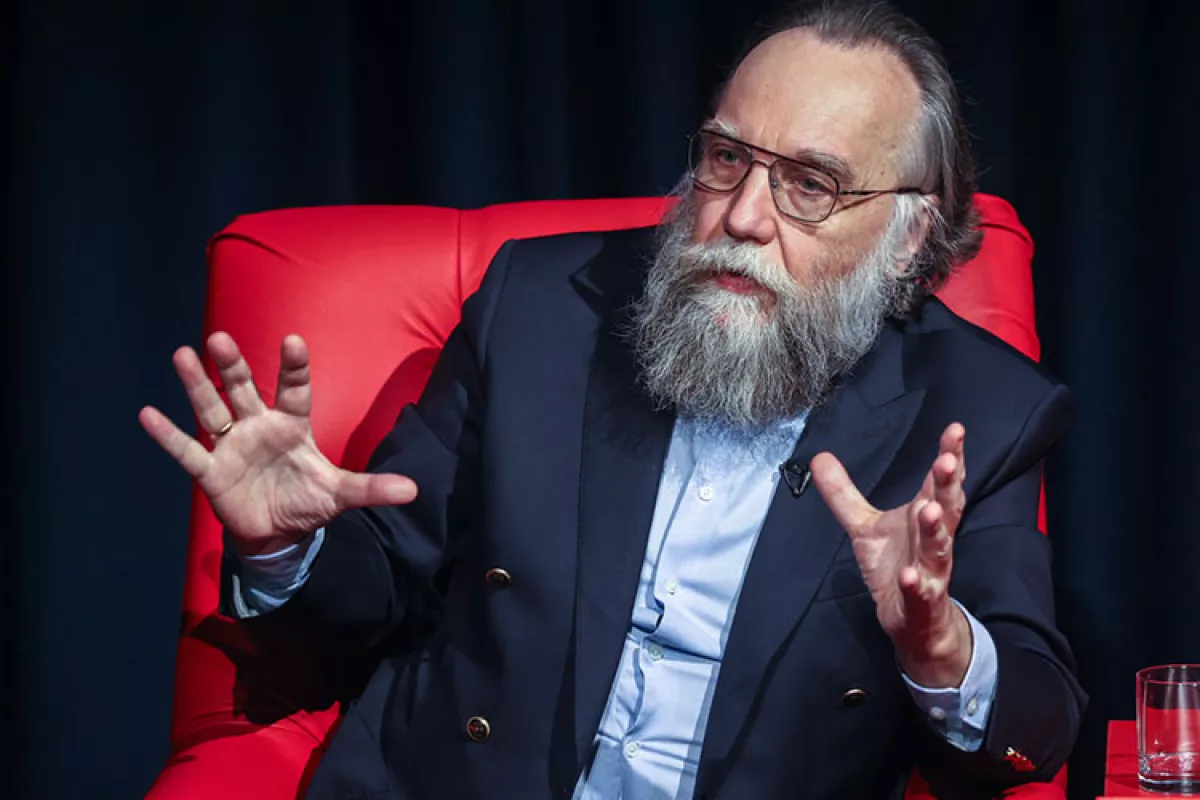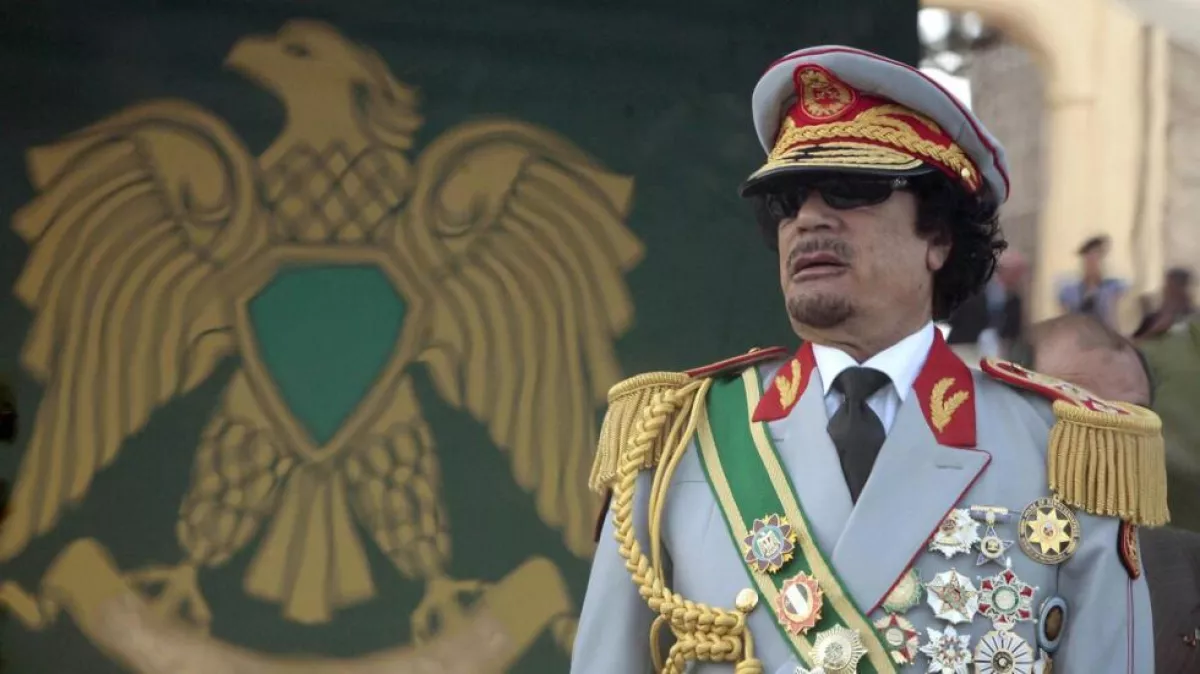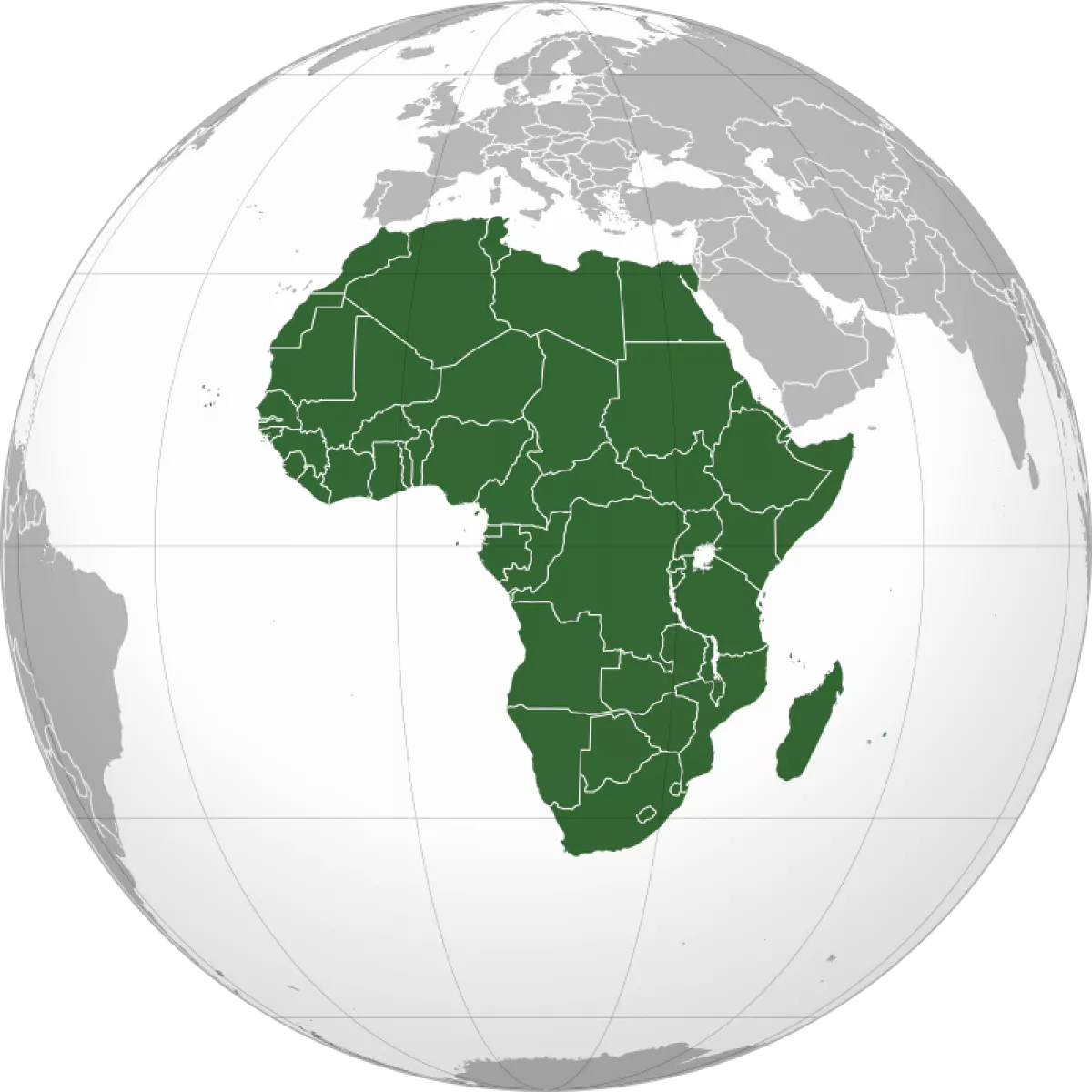The Black Continent awakens Challenges and prospects of the New Africa
The world is rapidly changing before our eyes, and one of the reasons for these tectonic shifts is the awakening of the Global South. African countries may play a significant role in these processes.
Returning the continent to its peoples
Recently, Russian publicist and philosopher Aleksandr Dugin declared himself a supporter of Pan-Africanism. However, the future of Africa, according to this Russian "Pan-Africanist," is seen in a rather peculiar light—governance on the continent should pass into the hands of the "leopard people." This thesis is not elaborated on in detail by the philosopher, but in fact, "leopard people" and "crocodile people" are secret societies that exercised informal power in the past, including through ritualistic killings within the cult of their totem animal. Well, such an approach aligns with the rather unique views of the Russian publicist, who calls for the maximal archaization of social relations.

Extravagant proposals also come from certain Pan-African activists, who base their vision of unity on radical Islam, ancient Egyptian cults, or even Black Supremacy. But what are the main directions of modern Pan-Africanism?
The concept of African unity emerged in the 1900s as primarily a cultural movement. However, Pan-Africanism took on a completely new significance during the national liberation struggles of African nations after World War II. Anti-colonial ideologues sought to counter the military and economic power of imperialist powers with the unity of African peoples. In March 1957, with the proclamation of Ghana's sovereignty, Kwame Nkrumah stated that Ghana's independence was meaningless unless it was tied to the complete liberation of Africa. Soon after, Pan-Africanists declared their goal to create the United States of Africa. The rallying cry for anti-colonial fighters became: "You have nothing to lose but your chains; you must take back the whole continent."
Today, Africa has thrown off its colonial shackles, but have the ideas of the Pan-Africanists been realized? Yes and no. On the one hand, in 1962, at the initiative of the first president of independent Algeria, Ahmed Ben Bella, the Organization of African Unity (OAU) was established, which set a course for continental integration. On the other hand, numerous obstacles to unification arose, some of which were even more difficult to overcome than the Sahara Desert that divides the continent.
An obstacle to Pan-African unity was also the low level of economic and social relations inherited from colonialism. The harmful legacy of colonialism even manifested in tensions between French-speaking and English-speaking activists within the Pan-African movement. In some cases, solidarity could not be achieved not only between neighboring countries but even within individual states, torn apart by inter-ethnic conflicts. A significant hurdle was also the alignment with Western or Eastern blocs, which further divided the continent. Western countries spared no effort or resources to sow discord and fuel confrontation wherever possible. After all, weakened nation-states are the main guarantee of the uninterrupted exploitation of Africa's natural resources and its people by foreign corporations. Today, tribalism on one side and international terrorism on the other have turned entire countries into zones of constant crisis and war.
The challenging road to unity
Against this backdrop, for several decades, Pan-Africanism as a political and economic project stagnated and returned to the cultural and academic spheres. However, in 2002, the African Union (AU) was established, replacing the Organization of African Unity. Today, the Pan-African Parliament, the ministries of the AU Commission, the African Central Bank, the African Monetary Fund, and the African Investment Bank are operational. The African Court of Justice is also being established. One of the initiators of the AU's formation was Libyan leader Muammar Gaddafi, who, as early as 2005, at the 3rd AU summit in Tripoli, called for the creation of a common defense system, a single citizenship, and a unified currency. Undoubtedly, such initiatives from the revolutionary Colonel Gaddafi enraged Western imperialists, which became one of the reasons for the 2011 coup in Libya and his assassination.

But the African struggle for full independence is now unstoppable. Today, the tradition of uncompromising resistance to the legacy of colonialism is continued by the leaders of the military transitional regimes in Burkina Faso, Mali, and Niger. However, due to the radical attitudes of their leaders towards the West and accusations of coups, the membership of these countries in the African Union (AU) is currently suspended. As a result, the leaders of the anti-colonial military regimes have created their own regional alliance (Confederation) of Sahel countries, aimed at establishing a defense, economic, and monetary union. To date, there has been close cooperation between the Sahel Confederation and China, Russia, and Türkiye.
In the countries of the Sahel Confederation, the discussion on modern Pan-Africanism continues. According to writer Adama Siguiré, the current leader of Burkina Faso, Captain Ibrahim Traoré, embodies the ideals of the legendary Thomas Sankara. However, as Adama Siguiré believes, many governments that came to power through elections are not truly Pan-African. Meanwhile, the transitional regimes in Mali and Burkina Faso have become examples of Pan-Africanism in both essence and action.
The African Union is partially financed by Western funds, heavily dependent on international aid, and as a result, it often takes a moderate stance on many issues. The AU cooperates closely with the European Union, and an EU delegation, led by a special envoy, operates under its framework. On April 3, the African Union officially marked EU Day, and in May, the 3rd meeting of AU-EU ministers is set to take place in Brussels. Essentially, the African Union today seeks to replicate the structure and practices of the EU in many ways. At the same time, Western media have frequently published accusations against certain structures or figures within the AU of corruption, abuse, and having a "mafia-type organization."
Nevertheless, the anti-colonial trend within the African Union remains strong. The main theme for 2025 has been announced as "Year of justice for Africans and people of African descent through reparations." The AU aims to seek compensation for Africans for centuries of colonial oppression. The African Union is also placing significant emphasis on gender issues and the "green" agenda, but with its own perspective on these problems. For example, in the field of ecology, there is a proposal to return to traditional African roots. Without any "leopard-people," modern Pan-Africanists suggest taking the best from the past.
Dr. Ibrahim Assane Mayaki, the African Union's special envoy for food systems, accuses colonialism of disrupting ecologically balanced traditional farming practices. He advocates for a return to climate-change-resilient agricultural methods that have been practiced by African farming communities for centuries, as opposed to costly genetically modified crops imposed by corporations. Colonizers destroyed this system, which aimed to feed people in favor of commodity production. In this context, lost African crops (such as fonio, teff, millet, sorghum, and cowpea) are invaluable in the face of current global warming. However, European funds still show little enthusiasm for investing in their cultivation. "The path forward is not about reinventing the wheel but about rediscovering what Africa has always known and adding science to it," says the African Union’s envoy for food policy.
One of the most important areas is economic integration, carried out within the framework of the African Economic Community (AEC). Among other things, the AEC declares the transition to a single currency. However, like many other pan-African integration measures, this remains on paper for now. Today, a number of regional unions operate in Africa, including the Community of Sahel-Saharan States (CEN-SAD), the Common Market for Eastern and Southern Africa (COMESA), the Economic Community of Central African States (ECCAS), the Southern African Customs Union (SACU), and others.
In 2018, an agreement was signed to create the African Continental Free Trade Area (AfCFTA). According to the United Nations Economic Commission for Africa, by 2022, AfCFTA was expected to increase intra-African trade by 52 percent. In practice, this did not happen. Did the pandemic hinder progress? Perhaps, but not only that. For now, the African Free Trade Area’s assets include forecasts of a 7% increase in Africa's income by 2035 and many other optimistic expectations. However, there have also been tangible achievements. For example, on the 7th anniversary of the AfCFTA, celebrated on March 31 this year in Accra, Ghana, the successful launch of the Pan-African Payment and Settlement System (PAPSS) and the Electronic Tariff Book were highlighted, both of which significantly facilitated trade on the continent. To date, AfCFTA, which includes 55 countries, is the largest free trade area in the world by the number of member countries. It can also be said that entrepreneurs from some post-Soviet countries have discovered a real "Klondike" in the vast African market.
Problems and prospects
However, already at the early stages, the costs and problems associated with integration based on neoliberal principles are evident. First and foremost, this includes the diminishing role of national states and the increasing influence of supranational globalist institutions. This is accompanied by both a reduction in sovereignty and a weakening of social protection for the population. In the context of insufficient state regulation, profits of organized criminal and terrorist groups rise, as they join in the plundering of Africa's natural resources in collaboration with Western corporations. The unadapted transfer of EU practices to African soil also brings no positive outcomes. Indeed, one of the leaders of the fight against French colonialism, Frantz Fanon, once wrote: "We today can do everything, so long as we do not imitate Europe." Furthermore, the Rome Statute of the International Criminal Court (ICC) allows the West to intervene in the internal affairs of African states, initiating legal proceedings against their leaders in pursuit of its own interests.

It seems that achieving a higher degree of economic integration among African countries is impossible either within the framework of the globalist neoliberal model or by resorting to the practices of "leopard-people," as suggested by the aforementioned Russian publicist. In reality, it all comes down to the economy—its level of development and alignment with modern needs. As long as the primary sectors remain agriculture, manufacturing, and mineral extraction under the control of transnational corporations, achieving full independence is difficult. The true factors of progress can only be a shift toward national production of high added value and a digital economy.
However, what is important is that African countries today have the freedom to choose in terms of investment and economic cooperation. Many of them are opting for cooperation with China, which offers much more favorable terms and a real alternative to Western neocolonialism. Undoubtedly, the very idea of African unity is very much in tune with China's concept of "Common Destiny" and the "Belt and Road" initiative.
To date, the African Union has adopted the "Agenda 2063," which consists of five 10-year development plans, aiming for a colossal economic leap by that time. In particular, the creation of a single continental market of 1.3 billion people with a combined GDP of about $3.4 trillion is planned. This integration project is often referred to as "The Africa We Want."
The flagship projects of the "Agenda 2063" are highly ambitious. These include the creation of an African high-speed rail network that would connect all African capitals. Notably, Chinese companies are investing significant funds into African logistics. Another proposed initiative is the development of a unified continental raw materials strategy, which would allow Africa to add more value to its raw materials collectively, rather than having them bought cheaply by foreign companies. There is also a plan to strengthen local raw material processing.
An important aspect of the agenda is the cessation of all wars, civil conflicts, and acts of genocide that have drained many African countries, as well as addressing gender and criminal violence. The construction of the Grand Inga Dam on the Congo River is expected to become a true pan-African energy revolution. If the Grand Inga project in the Democratic Republic of the Congo is successfully implemented, it will become the largest power plant in the world.
"Agenda 2063" also plans to establish a unified African electronic communications network, an African electronic university for remote access to higher and continuous education for Africans, and even an African space program. These are the trends of modern Pan-Africanism.
To some, the plans to transform the African continent into a new global center of power may seem somewhat fantastical. However, Africa's potential, given its vast natural resources and rapidly growing population, is enormous. Digital technologies and the potential of artificial intelligence provide new opportunities for an unprecedented leap in education, science, modern manufacturing, and sustainable planning. The coming era is one of the global South—a time for a new Africa.








